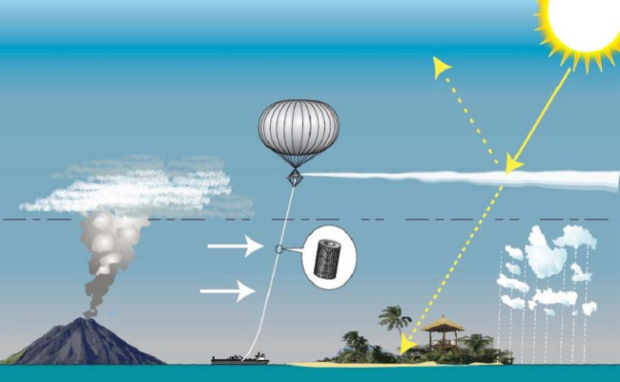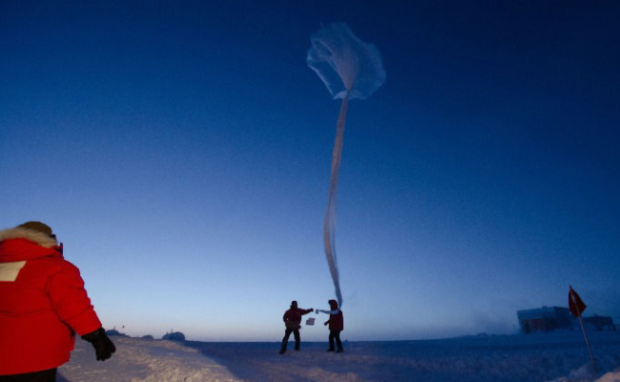Make Sunsets Startup Releases Particles Into The Atmosphere To Change The Climate
A company tried to reduce sunlight and change the climate by releasing particles into the atmosphere. It sounds like a scheme from a movie villain, doesn’t it?
Yet, a real-life company claims it can reduce carbon emissions in a specific area by releasing balloons of “reflective clouds” in the atmosphere.
However, experts say the recent project from Make Sunsets is a terrible idea. They warn that it lacks scientific evidence and poses unknown, dangerous risks.
How does Make Sunsets try to cool the planet?

Photo Credit: en.wikipedia.org
The Make Sunsets website says it was founded in October 2022 and backed by Boost VC and Pioneer Fund.
It creates “reflective, high-altitude, biodegradable clouds that cool the planet” that would allegedly “prevent catastrophic global warming.”
Make Sunsets releases a natural compound via reusable balloons to create these clouds.
Strangely, it puts quotation marks around “really” when stating “they’re really effective.”
The startup claims a gram of its clouds could offset the warming that a ton of carbon dioxide emissions create in a year.
Moreover, it said its clouds settle back to Earth into compost after three years. Make Sunsets claims every $1 billion worth of its clouds could cool the world by approximately 0.1°F.
The website does not specify what chemicals it uses to create reflective clouds. However, an MIT Technology Review article says Make Sunsets uses sulfur and similar particles.
The publication also cited potential investors and customers who allegedly said the startup’s proposals are not part of a serious scientific effort or a credible business.
Rather, it looked more like an attention grab meant to stir up controversy. MIT spoke to Luke Iseman, the co-founder and CEO, who confirmed that Make Sunsets is an act of geoengineering activism.
Iseman hopes that stirring controversy could compel the scientific field to solve the growing threat of climate change.
“It’s morally wrong, in my opinion, for us not to be doing this,” he says. Yet, Iseman claims what is important is “to do this as quickly and safely as we can.”
What are the problems with Make Sunsets?

Photo Credit: www.msn.com
Many scientists have been against Luke Iseman’s recent project. For example, Shuchi Talati, a scholar in residence at American University, said it could reduce or restrict geoengineering research.
According to MIT Technology Review, Make Sunsets acts like a “rogue” actor. It has no particular knowledge of atmospheric science or its potential effects on the atmosphere.
Releasing its reflective clouds into the atmosphere could have unintended consequences. As a result, public outcry may compel lawmakers to ban research on such a method.
Moreover, Talati says it is hypocritical for the startup to claim it has humanitarian goals. After all, Make Sunsets executes projects without meaningfully coordinating with those who could be affected.
She says, “They’re violating the rights of communities to dictate their own future.”
Conclusion
You may pay for $10 cooling credits to have Make Sunset’s reflective clouds in your area. However, it has not provided solid evidence that they work.
Did you know this startup was not the first to try this idea? In 2011, Microsoft founder Bill Gates funded a venture that sprays non-toxic calcium carbonate (CaCO3) dust into the atmosphere.
Still, it faced similar pushback from environmentalists and scientists. Nevertheless, the threat of global warming continues to expand and requires immediate attention.